Medical College of Wisconsin Pediatric Hospital Medicine (PHM) Fellowship
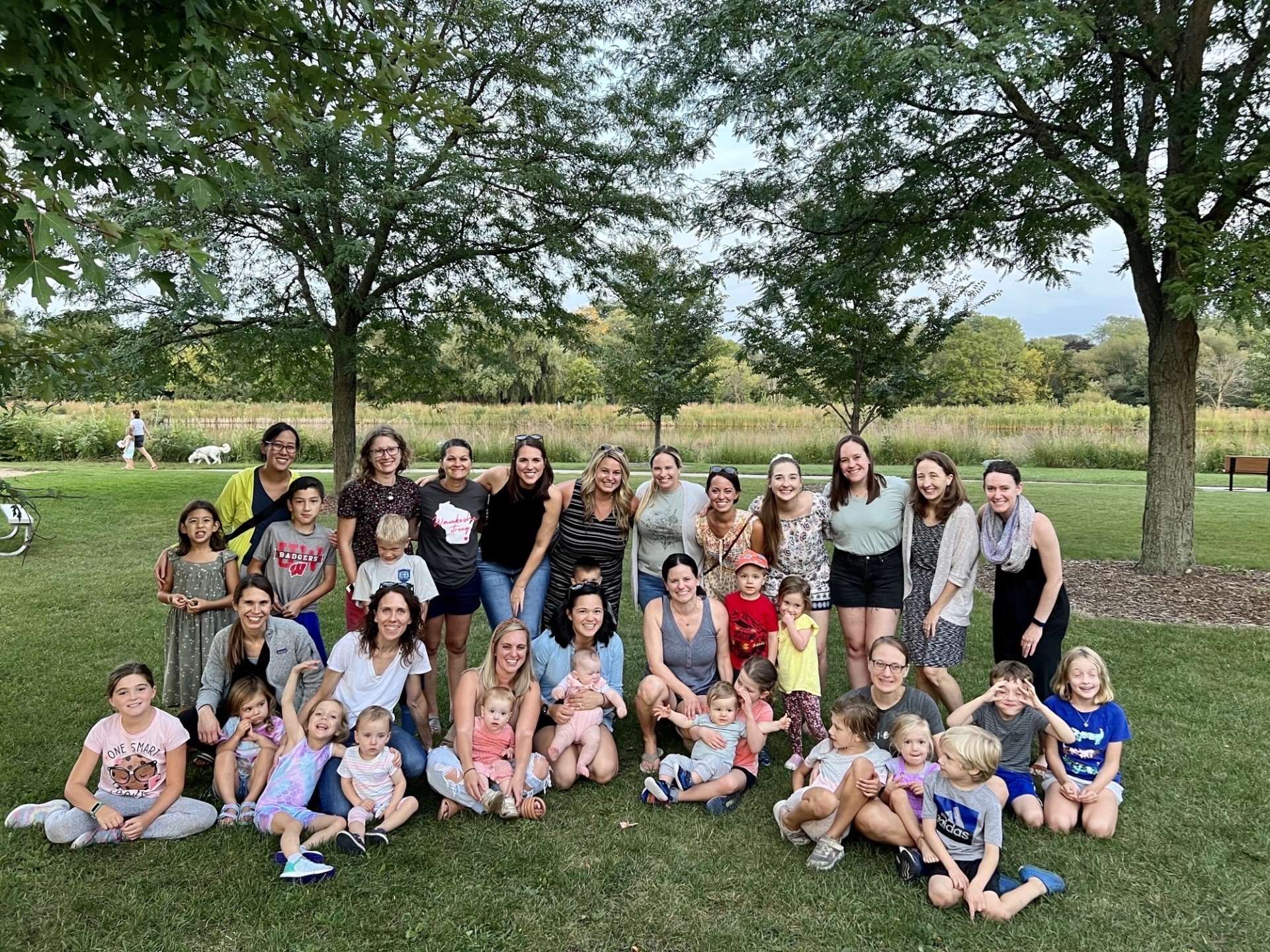
A Message from Our Program Director
Welcome! I’m excited that you are considering the Pediatric Hospital Medicine Fellowship at the Medical College of Wisconsin for the next step in your training and career journey. Our leadership team provides fellows with clinical, scholarly, and professional experiences that help them reach their individual goals. Our innovative curriculum allows for an immersive hospital medicine experience that promotes graduated autonomy. We pride ourselves on individualizing the fellowship curriculum and experience to meet the goals of each fellow. As fellowship director, I am invested in our fellows and eager to work with them to create their own individualized pathway into the hospital medicine career they desire.
Brandon Palmer, MD
Fellowship Program Director and Assistant Professor
Pediatric Hospital Medicine Fellowship Tour
See the people, places and spaces that make our Pediatric Hospital Medicine Fellowship so special.
Meet Our Fellowship Program Directors
Meet our fellowship program directors, Drs. Brandon Palmer and Patrick McCarthy.
As a PHM fellow you will...
- Develop expertise in caring for hospitalized children with acute conditions, chronic diseases, medical complexity, and diagnostic uncertainty
- Gain the experience and skills needed to practice independently in academic or community-based practices
- Complete a scholarly project in areas such as clinical research, education, or quality improvement that will help you advance our specialty and develop your career
- Build skills in leadership, hospital administration, practice management, and value driven care
- Work with a talented team in the Division of Pediatric Hospital Medicine at the Medical College of Wisconsin and Children’s Wisconsin, which is currently comprised of 36 hospitalists, and 11 advanced practice providers (APPs)
About Our Institutions
Medical College of Wisconsin (MCW)
The Medical College of Wisconsin brings together the most inquisitive minds in science, medicine, education and community engagement to solve the toughest challenges in health and society today. Academic medicine is at the core, where scientists, physicians and students work hand-in-hand with the community to ask the questions no one else is and fuel the continuous cycle of knowledge that’s shaping the future of medicine.
Children’s Wisconsin
Children’s Wisconsin is the region’s only independent health care system dedicated solely to the health and well-being of children. We offer a wide range of care and support for children of all ages. Our services include medical care, dental care, child and family counseling, foster care, adoption, social services, child advocacy and injury prevention.
About Our Fellowship
Our Spaces and Places
Ask Our Crew
What do you enjoy about the Section of Pediatric Hospital Medicine?
What do you enjoy about working at MCW and CW?
What do you enjoy about working with PHM fellows?
What do you love about Milwaukee?
I love the supportive and innovative nature of MCW. Our hospital medicine division is full of wonderful colleagues who care about our individual goals, career paths, and accomplishments throughout the fellowship years. Our program leadership goes the extra mile to help create and provide the fellowship resources and activities we need to be as successful as possible. I chose MCW for fellowship because they seemed like a fun group of people that would prioritize my needs, and I was right!
A current fellow
Current Fellows
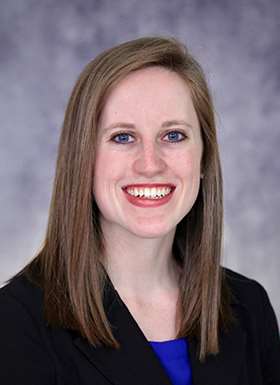
Heather Gladfelter, MD
Pediatric Hospital Medicine Fellow, 2024-2026
Medical School: Saint Louis University School of Medicine; Residency: Corewell Health/Michigan State University/Helen DeVos Children's Hospital
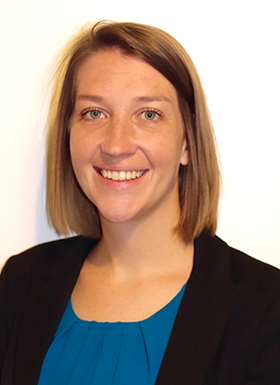
Elizabeth (Liz) Smits, DO
Pediatric Hospital Medicine Fellow, 2024-2026
Medical School: Chicago College of Osteopathic Medicine of Midwestern University United States of America; Residency: University of Iowa Hospitals and Clinics
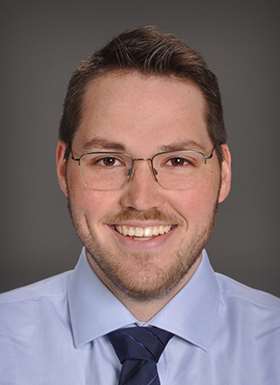
Austin Cummings, MD
Pediatric Hospital Medicine Fellow, 2025-2027
Medical School: Medical College of Wisconsin; Residency: Medical College of Wisconsin
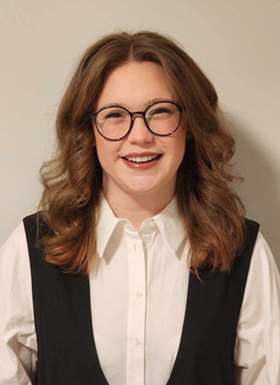
Ashley Hollo, MD
Pediatric Hospital Medicine Fellow, 2025-2027
Medical School: Medical College of Wisconsin; Residency: University of Colorado
Our Team
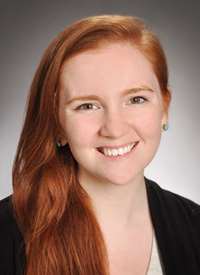
Lauren L. Titus, MD
Assistant Professor; Director, Pediatric Hospital Medicine Fellowship Program
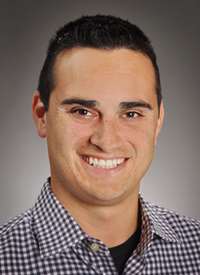
Brandon L. Palmer, MD
Associate Professor; Assistant Director, Pediatric Hospital Medicine Fellowship Program
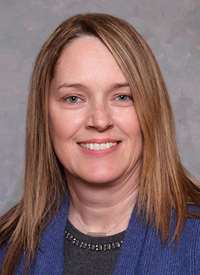
Judy Borchardt
Administrative Associate
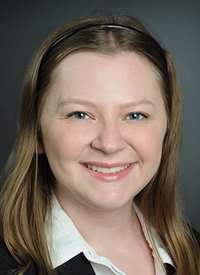
Emma Kiiskila
Program Coordinator II
Contact Us
Thank you for your interest in our program. We look forward to connecting with you!
Lauren Titus, MD
Program Director











